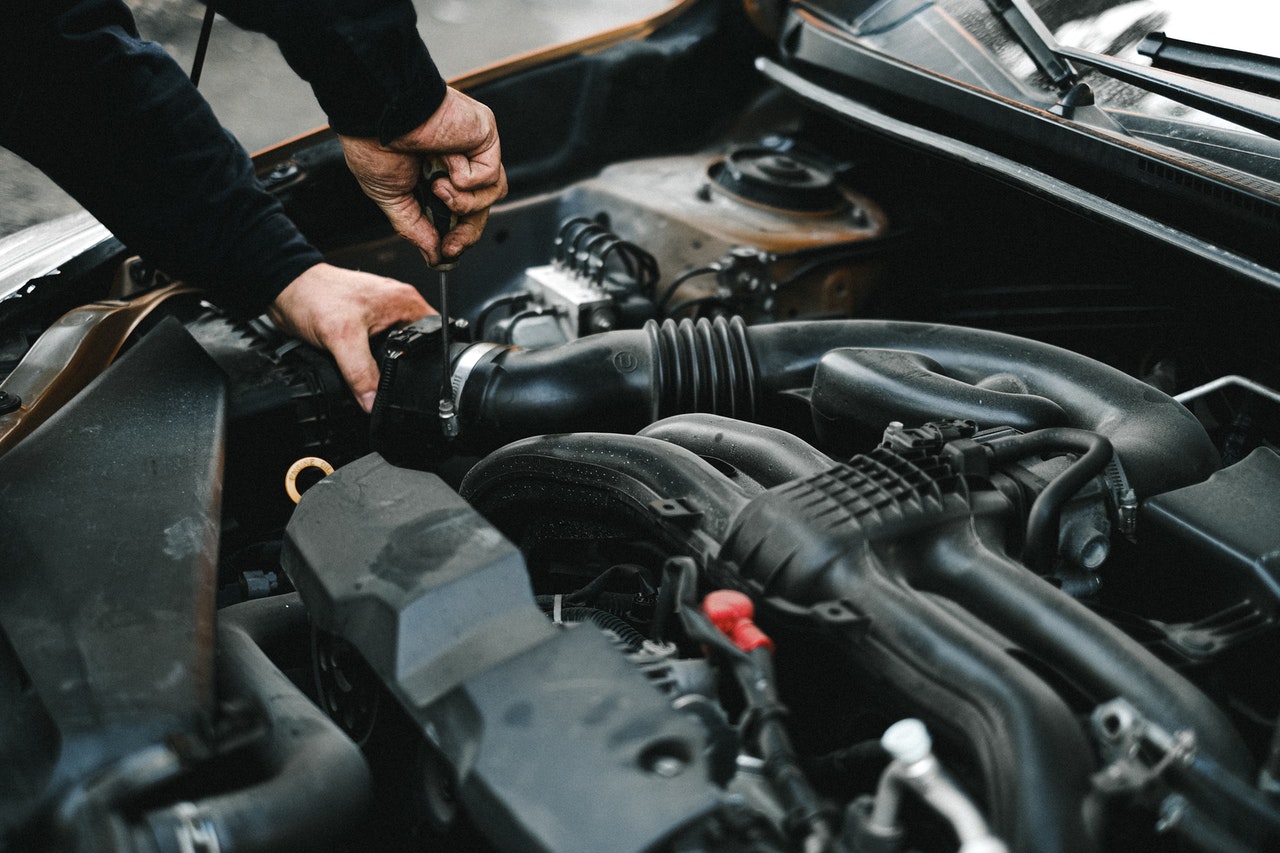Fixing Common Car Fuel System Problems
Fixing common car fuel system problems involves identifying the issue and taking the necessary steps to address it promptly and effectively. Neglected or malfunctioning fuel systems can lead to a range of issues, such as poor engine performance, decreased fuel efficiency, and even complete engine failure.
Taking proactive measures, such as regular fuel system maintenance and inspections, can help prevent these problems. However, if you encounter fuel system issues, it is crucial to diagnose and fix them promptly. This article will provide helpful tips and guidance on how to troubleshoot and resolve common fuel system problems, ensuring optimal performance and longevity of your vehicle.

Credit: www.goodwillcardonation.org
Understanding Common Fuel System Problems
Experiencing issues with your car’s fuel system? Identifying and fixing common problems such as clogged fuel filters, faulty fuel injectors, and fuel pump failure is crucial for maintaining your vehicle’s performance. By understanding these issues, you can save time and money on repairs while ensuring your car runs smoothly.
Fuel system problems are common issues that can affect your car’s performance. It’s crucial to recognize the signs and causes of these problems to keep your vehicle running smoothly.Symptoms Of Fuel System Problems
- Difficulty starting the engine
- Engine misfiring or hesitating
- Decreased fuel efficiency
- Strong smell of gasoline
Causes Of Fuel System Problems
- Clogged fuel filter
- Faulty fuel pump
- Dirty fuel injectors
- Leaking fuel lines
Diagnosing Fuel System Issues
When it comes to diagnosing fuel system issues in your car, it’s important to have the right tools and know-how. By using diagnostic tools and testing fuel pressure, you can pinpoint the root cause of the problem and take the necessary steps to fix it. In this section, we will explore these diagnostic methods in detail.
Using Diagnostic Tools
Diagnostic tools are essential for identifying fuel system problems accurately. These tools connect to your car’s onboard computer system and retrieve error codes that indicate specific issues. To use diagnostic tools properly:
- Locate the OBD-II port in your car. This port is usually found under the dashboard or near the center console.
- Connect the diagnostic tool to the OBD-II port. Ensure a secure connection to obtain accurate readings.
- Follow the instructions provided with the diagnostic tool to scan for error codes. These codes will help you identify any fuel system problems.
- Refer to the tool’s manual or online resources to understand the meaning of the error codes retrieved. This will assist in determining the specific issue affecting your car’s fuel system.
Testing Fuel Pressure
Fuel pressure is a critical aspect of the fuel system’s functionality. By testing the fuel pressure, you can identify any irregularities that might be causing performance issues. Here’s how you can test fuel pressure:
- Locate the fuel pressure test port on your car’s fuel rail.
- Connect a fuel pressure gauge to the test port, ensuring a secure connection.
- Turn the ignition key to the “ON” position without starting the engine. This primes the fuel system and allows you to read the pressure.
- Read the fuel pressure gauge and note the reading. Compare it to the manufacturer’s specified range to determine if it falls within the acceptable limits.
- If the fuel pressure reading is outside the specified range, further investigation is necessary to identify the cause of the problem. Potential culprits may include a faulty fuel pump, clogged fuel filter, or issues with the fuel pressure regulator.
By utilizing diagnostic tools and testing fuel pressure, you can effectively diagnose fuel system issues in your car. These methods provide valuable insights into the underlying problems and enable you to take the appropriate steps for fixing them. Next, we will delve into troubleshooting common fuel system problems.
Fixing Fuel System Problems
Your car’s fuel system plays a crucial role in delivering the required fuel to the engine for combustion. However, over time, various fuel system problems can arise, causing issues with fuel delivery and engine performance. In this section, we will explore two common fuel system problems and how to fix them: Replacing Fuel Filter and Cleaning Fuel Injectors.
Replacing Fuel Filter
A clogged or dirty fuel filter can significantly impact the performance of your car’s fuel system. It can restrict fuel flow, causing engine misfires, reduced power, and even stalling. Replacing the fuel filter is a relatively simple and cost-effective solution to ensure your fuel system is working optimally.
To replace the fuel filter, follow these steps:
- Locate the fuel filter: The fuel filter is typically found along the fuel line, either near the fuel tank or the engine compartment. Consult your car’s manual or seek professional assistance if you’re unsure.
- Relieve fuel system pressure: Before replacing the fuel filter, it’s important to relieve the fuel system pressure to prevent any fuel leaks. This can usually be done by removing the fuel pump relay or fuse and then cranking the engine for a few seconds.
- Detach the old fuel filter: Use a wrench or pliers to detach the fuel lines connected to the fuel filter. Be cautious of any residual fuel that may spill during the process.
- Install the new fuel filter: Attach the new fuel filter and ensure it is properly secured. Reconnect the fuel lines, making sure they are tightly fastened.
- Test for leaks: After replacing the fuel filter, start the engine and carefully check for any fuel leaks. If there are no leaks, you can proceed to test the car’s overall performance.
Cleaning Fuel Injectors
Over time, fuel injectors can become clogged with dirt, debris, or carbon deposits, affecting their spray pattern and disrupting fuel atomization. This can lead to poor fuel economy, rough idling, and decreased engine power. Cleaning the fuel injectors can help restore their proper functioning and improve overall engine performance.
Here’s how you can clean the fuel injectors:
- Identify the fuel injectors: Locate the fuel injectors, which are typically attached to the intake manifold or fuel rail.
- Remove the fuel injectors: Depending on your car’s make and model, you may need to remove other components, such as the intake manifold, to access the fuel injectors. Once exposed, detach the fuel injectors carefully.
- Clean the fuel injectors: There are several methods to clean fuel injectors, including using fuel injector cleaning kits or professional cleaning services. Follow the manufacturer’s instructions or consult a professional if necessary.
- Reinstall the fuel injectors: Once the fuel injectors are cleaned, reinstall them in the reverse order of removal. Ensure proper connection and tightening of any necessary components.
- Test the results: Start the engine and monitor its performance. If the fuel injectors were the cause of the problem, you should notice improvements in fuel efficiency and engine smoothness.
In conclusion, addressing fuel system problems promptly is crucial for maintaining your car’s performance. By replacing the fuel filter and cleaning the fuel injectors, you can ensure a well-functioning fuel system and enjoy a smoother and more efficient driving experience.

Credit: www.autotrainingcentre.com
Preventive Maintenance For Fuel System
When it comes to maintaining your car’s fuel system, preventive measures play a crucial role in ensuring optimal performance and longevity. By conducting regular inspections and using quality fuel, you can prevent common fuel system problems from arising.
Regular Fuel System Inspections
Regular inspections help to identify potential issues early on, such as leaks or clogs, and prevent costly repairs later on.
- Inspect fuel lines, filters, and pump periodically to ensure proper functioning.
- Look for any signs of corrosion or damage that may affect the system.
- Regularly clean or replace dirty filters to maintain smooth fuel flow.
Using Quality Fuel
Quality fuel is essential for the health of your fuel system.
- Choose a reputable gas station to ensure you are receiving clean, uncontaminated fuel.
- Avoid using old or stale fuel, as it can cause clogs and damage to the system.
- Regularly use fuel additives to clean and maintain the fuel injectors.
When To Seek Professional Help
Signs Of Complex Fuel System Issues
If you experience persistent fuel system problems like rough idling, stalling, or difficulty starting your car, it can indicate complex issues. Other signs to watch for include excessive fuel consumption, a noticeable drop in fuel efficiency, and a strong smell of fuel inside or near the vehicle. Addressing these symptoms promptly can prevent costlier repairs down the line.
Choosing A Reliable Mechanic
When searching for a mechanic to address fuel system problems, it’s crucial to select a reputable and skilled professional. Look for certifications such as Automotive Service Excellence (ASE) and seek referrals from trusted sources like friends and family. Ensure that the mechanic has expertise in diagnosing and resolving fuel system issues, as well as a track record of providing timely and reliable service.

Credit: www.dubizzle.com
Frequently Asked Questions Of Fixing Common Car Fuel System Problems
What Is A Common Fault In The Fuel System?
A common fault in the fuel system is clogged fuel filters, which restrict fuel flow to the engine.
How Much Does It Cost To Fix A Fuel System Problem?
The cost of fixing a fuel system problem can vary depending on the specific issue, the make and model of the vehicle, and the labor rates in your area. It is best to consult with a qualified mechanic for an accurate estimate.
How Do You Troubleshoot Fuel System Problems?
To troubleshoot fuel system problems, start by checking for any clogs or blockages in the fuel lines. Inspect the fuel filter and ensure it is clean and unclogged. Verify that the fuel pump is functioning properly and delivering fuel at the correct pressure.
Additionally, check the fuel injectors for any issues or malfunctions.
What Are The Symptoms Of A Bad Fuel System?
Symptoms of a bad fuel system include rough idling, decreased fuel efficiency, engine stalling, and a strong fuel odor.
Conclusion
In closing, addressing car fuel system problems promptly prolongs vehicle life. Timely maintenance reduces costly repairs and ensures smooth performance. Remember to check for common issues regularly for optimal functioning. Proper care of the fuel system leads to a safer and more efficient driving experience.


